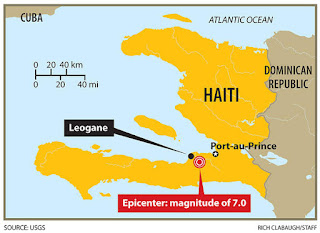As the saying goes, “Doctrine divides”. Indeed this is true. In light of this fact, many have viewed
doctrine as a hindrance to Christian love and shy away or even rebuke those who
desire to probe deeply into doctrinal matters.
However, some things merit division.
That is to say, we are not under any biblical or godly obligation to
maintain unity at the expense of truth. "No Compromise" was the theme of last week's Ligonier Ministries National Conference; a ministry that has been a great blessing to me and I am better for having attended it for a second time.
The Bible is full of stories where God sent prophets to
demand that His people “come out and be separate” based on the word of God. The Bible is the basis of all sound teaching
and Christian doctrine is nothing more than all things that God has revealed concerning
Himself, the nature and destiny of mankind, our need for God, what God has done
in Christ for all who believe, and what God demands from believers by His Spirit. Doctrine, therefore, is not something
reserved for the cold calculations of stuffed shirts in an academic ivory
tower. Doctrine is God’s safeguard for
mankind, a light for the true believer, and the growing passion of everyone who is in
Christ. And since the time of the
Apostles, no one has exemplified a God-honoring zeal for doctrine quite like that
great North African: Athanasius of Alexandria.
As a young man, Athanasius attended the Council of Nicaea
(325 A.D.), acting as the secretary to his bishop. Forget whatever you've heard about that
gathering if it didn't also include the fact that these participants were
mainly priests and bishops who bore in their bodies the proof of their
devotion. This was not some pristine
assembly the affluent, arrayed in golden garments and finery. No, these men were the scarred and mutilated
representatives of Christians and whole churches that had been tortured,
looted, and martyred because they would not trade the truth of God’s work in
Christ on their behalf for the temporal pleasure of “peace” with the Roman
Empire. This scene deeply influenced
young Athanasius who saw firsthand the price of devotion to the Christian faith
and a refusal to compromise even a “jot or tittle” of the Holy Scriptures.
Athanasius was eventually made bishop over Alexandra and
served for 45 years. However, 17 years
of his tenure would see him exiled—not once or twice—but five times. He was not forced out of his church and city
for misconduct or moral failures. His “crime” was that he faithfully proclaimed the doctrine of the
Incarnation (that Jesus was God in the flesh) at a time when many who called
themselves Christians did not believe the scriptures on that issue. Athanasius believed in the deity of Christ
and taught on the doctrine of the Trinity when it was unpopular to believe that
Jesus was truly and fully divine.
Because he believed that only God could save sinners and that Jesus was
God, he suffered as members of his own church and churches in his home city
went back and forth between two doctrines.
But Athanasius was resolute in affirming scripture and refused to
compromise. He was known, therefore, as
Athanasius Contra Mundum “Athanasius Against the World” and I am indebted to him for the name of my blog among other things.
Athanasius deserves a spotlight because the very doctrines
that we take for granted in our churches today are the very ones that God
strengthened this man to defend and preserve at a time when false doctrine
might have overcome the church entirely.
For sure, we recognize that Christ is ultimately the protector of all
truth entrusted to the Church. However,
it is proper to recognize that God, through the Holy Spirit, uses human agents
to achieve that goal. Athanasius’
example has been a lighthouse for the Church throughout every generation
since. The much-celebrated generation of
the Reformers like, Martin Luther, Philip Melanchthon, John Calvin, and Ulrich
Zwingli sit on the shoulders of a mighty African giant whose example of Christian courage
inspired them to stand firm during the great doctrinal struggles of their
day.
May the Lord grant us grace to stand as Athanasius did in
his day and three Hebrews before him, Contra Mundum, “against the world” and for the doctrines that honor Jesus the Christ.
(A great book on early theologians and their contributions to the faith is the work edited by Bradley G. Green's Shapers of Christian Orthodoxy published by IVP Academic).
.jpg)
